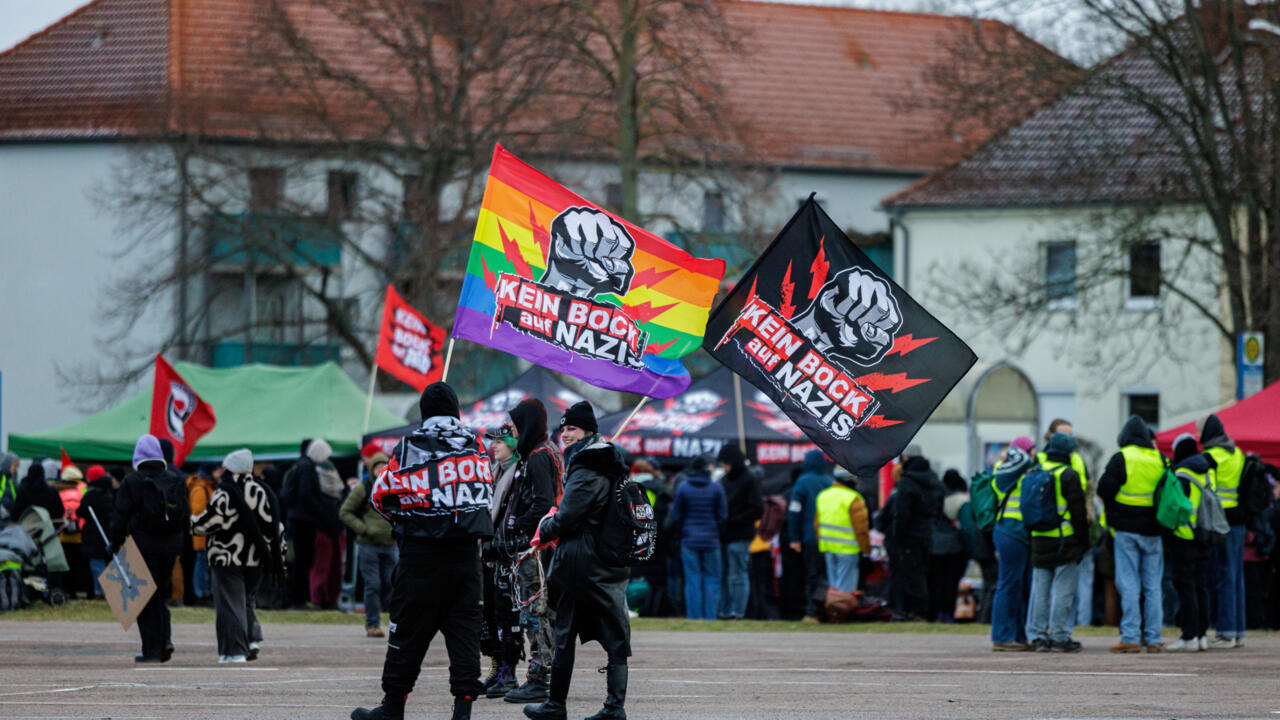In Riesa, Germany, thousands of protesters gathered to oppose the far-right Alternative for Germany (AfD) party’s convention, where Alice Weidel was chosen as their candidate for chancellor in the upcoming snap election. The demonstrators, who chanted “No to Nazis,” attempted to block delegates from attending the meeting. Police were forced to intervene, using pepper spray to disperse the crowds and clear blockages, which delayed the start of the convention by two hours. The event was attended by around 600 delegates, despite the protests.
The protest organizers claimed that 12,000 people participated, emphasizing their commitment to protecting the rights of individuals and rejecting fascism. A police spokesperson reported that around 8,000 demonstrators gathered outside the convention center. While the protests did not escalate into major unrest, some roads leading to Riesa remained blocked well into the morning, disrupting access to the venue. The police action aimed to maintain order as the protests continued outside.

Inside the convention, Alice Weidel praised her party for standing up to what she called a “left-wing mob.” Tino Chrupalla, co-leader of the AfD, criticized the protesters, calling them “anti-democrats and terrorists.” Despite receiving an endorsement from tech billionaire Elon Musk, analysts point out that Weidel has little chance of winning the chancellorship, as her party’s support, while substantial, is not enough to secure a coalition with other parties. The AfD currently holds second place in polls, but most other parties have ruled out collaborating with them.
During the two-day convention, delegates finalized the AfD’s election program, which includes controversial proposals. One notable suggestion is the implementation of “remigration,” a policy aimed at expelling foreigners from Germany. The party’s youth wing, Junge Alternative, which has been labeled an extremist group by intelligence agencies, has stirred further controversy. Other parts of the program also include a plan to withdraw from the euro and reverse Germany’s exit from nuclear power, proposals that have sparked debate.
Meanwhile, Friedrich Merz, the candidate for the conservative Union bloc, continues to lead in the polls. With about 30% of the electorate supporting his party, Merz has focused his campaign on addressing economic stagnation and reducing irregular migration. After the collapse of Chancellor Olaf Scholz’s coalition government, Merz called for “fundamental change.” Scholz, who acknowledged past mistakes in his administration, has been re-nominated by his party and expressed his commitment to looking ahead as Germany prepares for the election.


